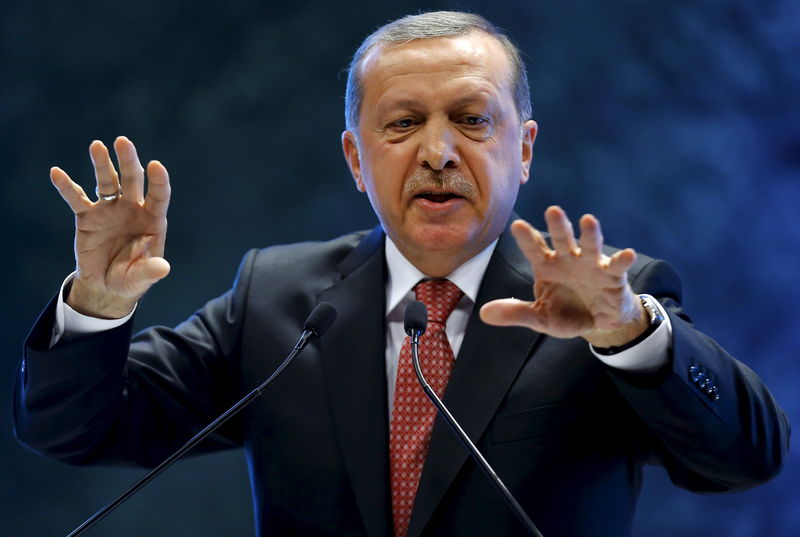(Bloomberg) -- Traders are waiting to see which of the two routes President Recep Tayyip Erdogan takes after the ruling party suffered losses in municipal elections over the weekend -- double down on populism, or use four election-free years to backtrack and embrace free-market reforms.
Monday’s gains in the lira suggest some investors are betting he’ll begin to adopt a more tempered approach after Sunday’s setback at the polls. Turkey’s biggest cities turned against him for the first time since 1994 after his growth-at-all-cost leaning precipitated a run on the currency last year, dragging the economy into its first recession since the global financial crisis.
After a roller-coaster ride in the lira in the past two weeks, accentuated by policy changes, investors want reassurance. That may come next week when Finance & Treasury Minister Berat Albayrak is due to unveil a new economic plan, having pledged to take Turkey on a post-election reform path. Until then, Erdogan could blindside the market at any moment with more of his unorthodox economic beliefs, including the claim that higher interest rates cause inflation.
“The big risk is that he’s going to be more interventionist because he’ll be impatient for change,” said Nigel Rendell, a London-based senior analyst at Medley Global Advisors. “On monetary policy Erdogan’s bit his tongue for the past six months or so, which has coincided with broad lira stability, but not sure how much longer this can last.”
The central bank has signaled it will maintain a hawkish stance until the pace of price growth slows, but investors are worried that Erdogan could override that, imposing policies that would stoke an inflation rate running at four times the official target. Just last week, he said consumer inflation will slow if Turkey lowers interest rates.
The latest volatility all started when a sudden rundown of central bank reserves last month caught investors by surprise, sparking speculation that the bank was intervening to support the currency. As the lira declined, the authorities took steps that led overnight rates to peak at 1,300 percent.
“The market would like more clarity on the recent outsized, and seemingly inexplicable, swings on the country’s low net FX reserves which have unnerved many market watchers,” said Paul Greer, a London-based money manager at Fidelity International. “Investors will also be eager to see a commitment from Turkey to maintaining a stable fiscal trajectory and a tight monetary policy.”
The lira climbed as much as 2.6 percent to 5.4288 against the dollar on Monday, erasing a more than 2 percent drop earlier in the day.
“I think with the country so deep in recession and the lira being so fragile, my base case is that he looks to set policy that will be more short-term focused regardless of when the next election is,” said Brendan McKenna, a currency strategist at Wells Fargo (NYSE:WFC) Securities in New York.
